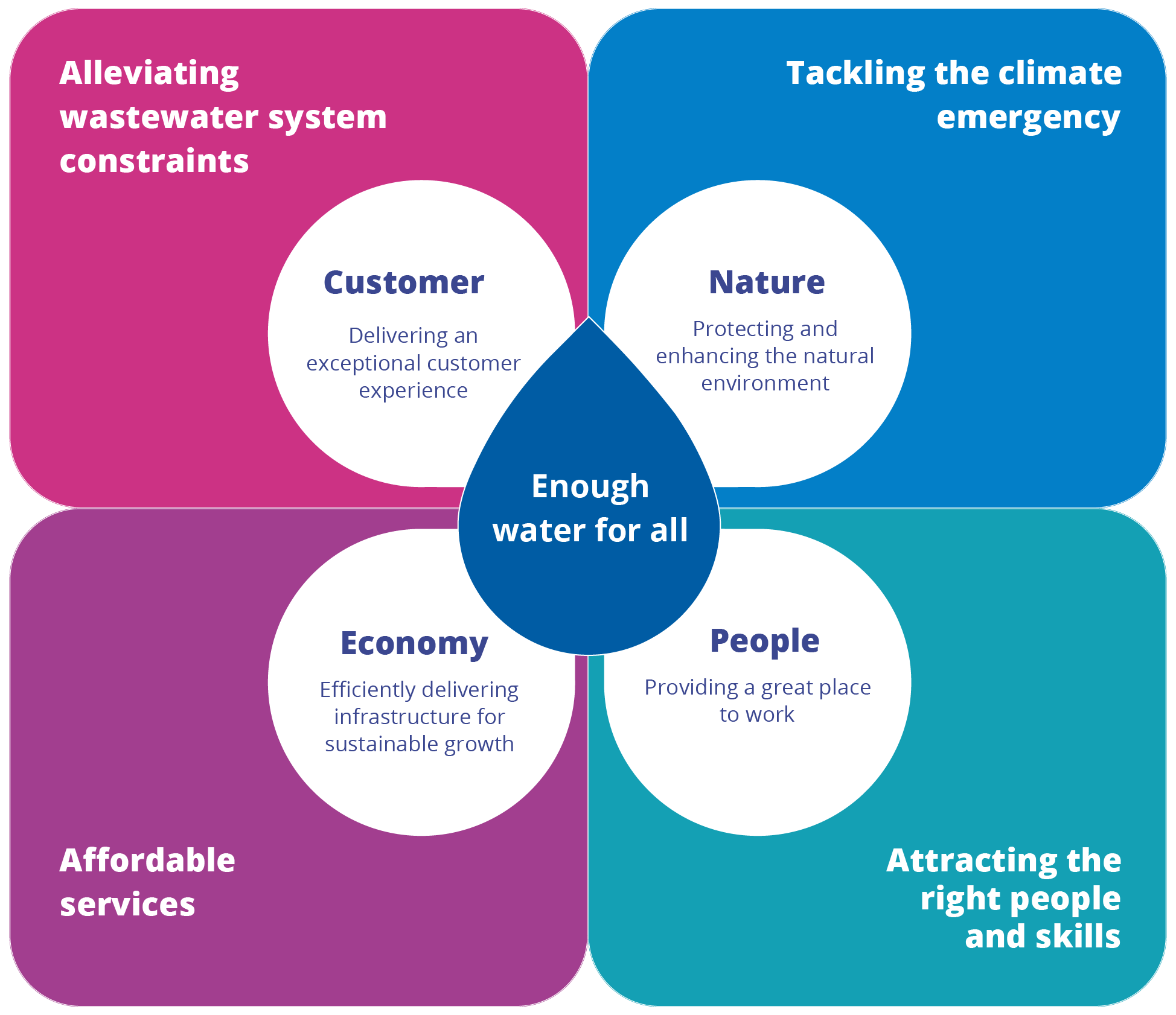Innovation Imperatives
We remain open to any ideas that can improve what we do. Yet we need to focus our limited resources towards our most pressing challenges. Our current five areas of focus for innovation are highlighted below. These will be reviewed on a bi-annual basis.

Enough water for all
We have identified several water resource zones that will potentially fall into deficit in a drought period so actions will be taken to address these. We are currently developing a Water Resource and Supply Resilience Plan that will address these deficits through modelling, planning and recommendation of capital and other projects. We also identified several areas vulnerable to an extended supply interruption in the event of a major asset failure. We need to improve the resilience of service provided to customers using the best mix of investment in improving water mains, water storage and interconnectivity between supply systems.
We will be implementing a ‘Whole Systems Thinking’ approach to our assets and their performance to minimise the risk of failure. These techniques come from Nuclear and Defence industries and consider the inter-relationships of assets at a Macro Level rather than individually. Supported by data analytics and predictive modelling this will ultimately improve asset resilience and reliability of our service. This approach will also be adopted in our wastewater assets.
Alleviating wastewater system constraints
As a result of under investment in our wastewater infrastructure over 20 years, there is a growing risk of a deterioration in levels of service for customers and inadequate environmental protection through increased sewer flooding and pollution. With over 100 of our towns unable to connect new housing and commercial buildings to the sewage system there also a growing concern about the potential adverse impact to employment and our economy.
Even with the elevated levels of funding recently awarded, it will require 18 years of investment at these levels to address the backlog of work required to ensure that our wastewater infrastructure is fit for purpose. NI Water must seek out innovative solutions to deliver more wastewater alleviation sooner and to do so in a manner that advances our Net Zero agenda.
Tackling the climate emergency
The UK water industry’s pathway to decarbonisation identifies electricity as the major driver of operational carbon emissions. At NI Water 68% of our operational carbon emissions result from our use of electricity. It is therefore a clear priority for the company to implement new means to secure a resilient and affordable supply of renewable electricity that displaces its requirement for fossil fuel generated power which will include the need to find routes to access additional funding. Our next priority is then to tackle the carbon that is embodied in the assets and materials upon which we rely.
Affordable services
To enable us to provide the services our customers rely on, we are in turn are reliant on our supply chain. Looking to the future, we know many of the costs we face will increase as global demand accelerates, most notably for energy supplies. To keep our customer bills and levels of funding affordable, we need to look across all parts of our business for innovative ways to reduce everything we consume, including investing in new technology that delivers lower costs in the long term. We will need to collaborate with our supply chain partners to develop innovative solutions to achieve both operating expenditure efficiencies as well as those that will be required in the delivery of capital projects.